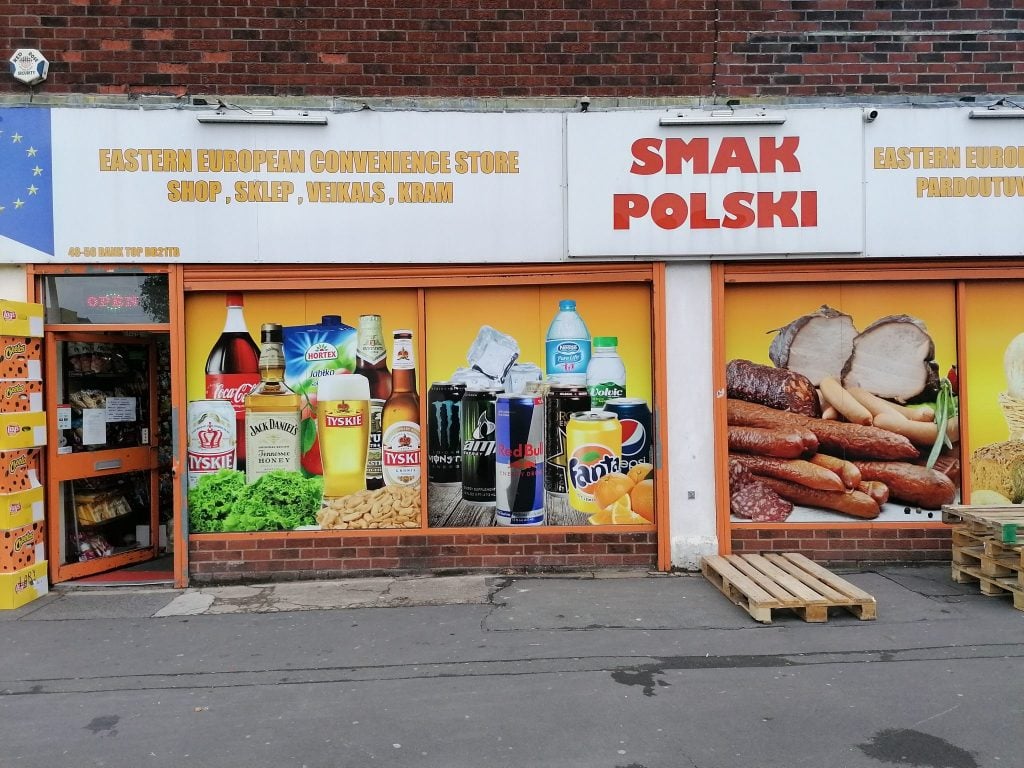
When I phone Mark, he’s a bit worse for wear: he’d spent the evening before in his favourite Blackburn pub, the Alex, getting in a last drink before the coronavirus shutdown. He’s resting, he tells me, on a box of poetry books just sent to him by his publisher. Due to all upcoming readings and events being cancelled, he can’t sell them as he’d planned. We natter about lockdown life in Blackburn.
“It’s a bit weird,” he muses, “while I was working in Dove Cottage in Grasmere, maintaining the cottage and grounds, I wrote about the post-industrial landscape I’d left behind rather than the Wordsworth landscape on my doorstep”.
Born and raised in Blackburn, Mark has bounced around the world since the eighties, when he left home for Monte Carlo on the Magic Bus as an eighteen year-old. He now lives three doors down from the house he was born in. “I’ve been to Africa, I’ve been to Alaska,” he says. “The people don’t change that much, though the scenery does.”
Mark is one of the artists working with Kick Down the Barriers, a project based at Blackburn Museum that aims to challenge narratives of segregation and division in the town perpetuated by unsubtle media hot-takes. For one of his commissions, he has produced a poem called ‘The Polish Shop’, which explores the powerful interface between language and food.
*
‘The Polish Shop’, Mark Ward
“Language is the only homeland”
Czesław Miłosz
I’m in among the pickles and preserves.
Verdant rows of gherkins and olives,
fermented cabbage and stuffed vine leaves.
Shades of green, broken by colour burst
of bright yellow sweet corn, scarlet paprika,
golden apricots, mandarins and pears.
The food is familiar enough, though the labels
aren’t corresponding to my own palette.
Korniszony, Oliwki, Kapusta, Słodka Kukurydza, Morele.
“Same food as English, with Polish names”
The manager explains helpfully.
“It tastes better in your own language.”
He has a point, it’s not just the visuals.
Rather, the words and their associations
that arouse and stimulate the senses.
Here, in this home away from home,
obiad z pieczonej wołowiny evokes the same
warmth and familiarity as a ‛roast beef dinner’.
Sos pours like ‛gravy’ on the Sunday roast.
And brzoskwinie i krem carries the refreshing
summer taste of ‛peaches and cream’.
Names, indelibly fixed in a place and time.
When I hear the word trifle, I’m back at
my grandparents on Ferguson Street.
The gingham tablecloth, grandad in the armchair
puffing his pipe. Sedate, soporific: the floral carpet,
the china cabinet, the crucifix on the wall.
Then, mention shepherd’s pie and I’m home.
Ensconced on the sofa with a tray on my lap:
pushing a fork through a crimped, toasted potato lid;
releasing steam through buttery vents.
Alone in the aisle the decades slip by.
I’m lifting and coasting through the lexicon now.
Chocolate eclairs, iced buns, pilchards, Carnation milk.
I’m having afternoon tea with relatives, long deceased.
All whistling kettles, ash buckets and mangles.
I see my fellow shoppers’ tender cuts of mięso
and sweet, sticky budynie, subconsciously returning
them to their firesides of Krakow and Warsaw.
Our lives running parallel, separated only by the
shape and sounds of words; the memories they inform.
Language is the closest place to home.
*
“Blackburn’s always had a big Polish community, even when we were kids. Everyone needed somewhere to go on a Sunday after the pub closed at two o’clock, so we all joined the Polish club, or the Ukrainian club. People had their engagements there and their weddings there.”
It’s true that immigration is nothing new in Blackburn. During WWII, Lancashire was the site of several Prisoner of War camps. “They didn’t lock the Italians up, because they didn’t want to go back to the war, so they just worked on the fields,” Mark recalls. Many stayed on when the war finished.
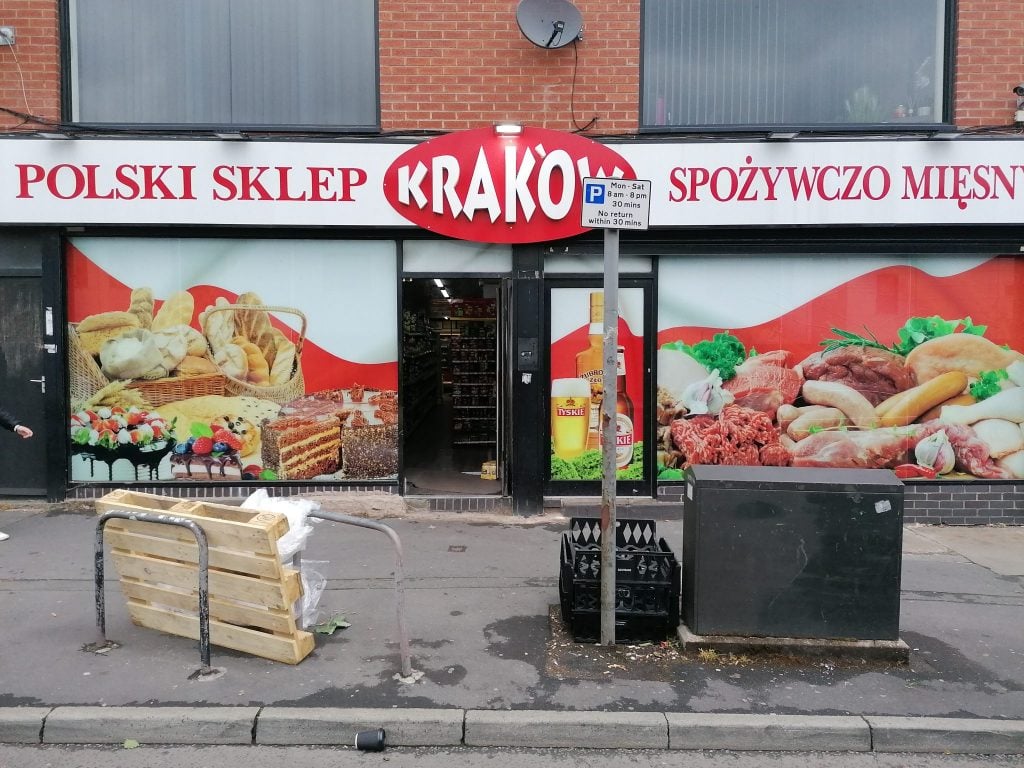
It was initially tricky for Mark to find a way into Blackburn’s Polish community. The earlier Polish migrants were, by necessity given their small numbers, rapidly integrated into the town. However, Mark suggests that the upheaval caused by Brexit and the media battering of northern towns have taken their toll. “There’s a siege mentality, they’re circling the wagons. They were friendly, but you could see they were a bit reticent, a bit wary. They’ve had all that shit with Brexit.
“That’s why I came at it from the shop angle. Food is culture. Language is culture too.”
Mark’s poem ‘Polish Shop’ is certainly nostalgic, but not sentimental. He is clear that division and distrust aren’t recent imports. “Our neighbours used to hate us,” he laughs. “They wouldn’t have anything to do with us as kids and they were all white.” A poem from Mark’s 2008 collection Thunder Alley, ‘Mrs Eccles walks on Air’, describes vividly the nastiness of a neighbour who knocks a child from its bike with a broom handle.
Mark remembers Blackburn in the seventies as a territorial battleground. “You wouldn’t want to be caught in the wrong ends! I went to school on the other side of town, and if I missed the bus and had to walk the three miles home…
“Every little area had their own bonfire. You had to guard your bonfire because people from other areas used to try and pinch your wood.”
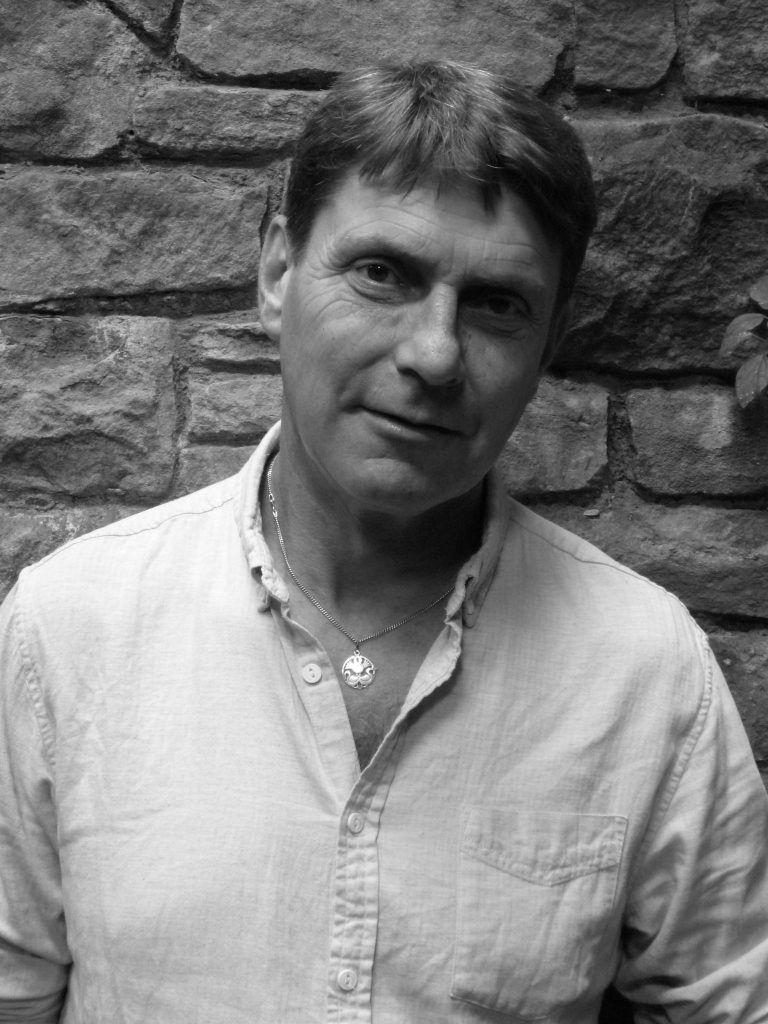
‘Polish Shop’ muses on the nostalgic resonances of food-words in both Polish and English: it explores the power of words like sos, gravy, budynie or trifle to transport us to another time or place. It is autobiographical, drawing on Mark’s own recollections of his childhood and family. It extrapolates these feelings of wistfulness to create a window of empathy between two communities, and two eras.
“I don’t think my grandparents had ever seen a pepper. It was a different time. They had a mangle. You had to light a paraffin lamp in the kitchen to go to the outside loo at night.
“Those formative years, the things that you hear, the things that you taste, that sets you up, that’s your culture. My younger brother used to stay with my grandparents because my mum was working. He used to eat tripe and offal and all that crap. We never ate it. He still eats that stuff but I can’t even look at it.”
Mark runs a weekly poetry session at the Ark refugee centre in Blackburn. A recent poem of his, “Haboob”, is epic in its scope: anchored in an account of one of his poetry classes, it takes in the journeys of Blackburn’s asylum seekers, the trauma of Brexit and lessons from the coronavirus pandemic. He would like to see a broad, and local, audience for his work, “beyond just people who buy and read poetry”.
“I don’t think poetry asks or answers questions. It chronicles. It leaves questions, as a window through which to look at things.”
Find out more about Mark Ward here and the Kick Down the Barriers project here.

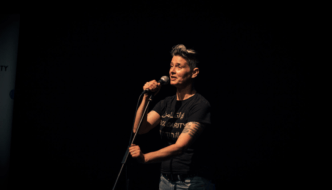
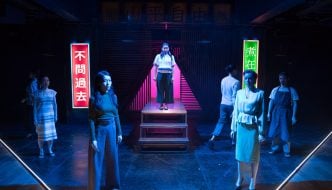
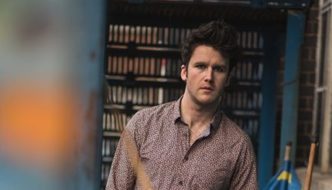
Comments